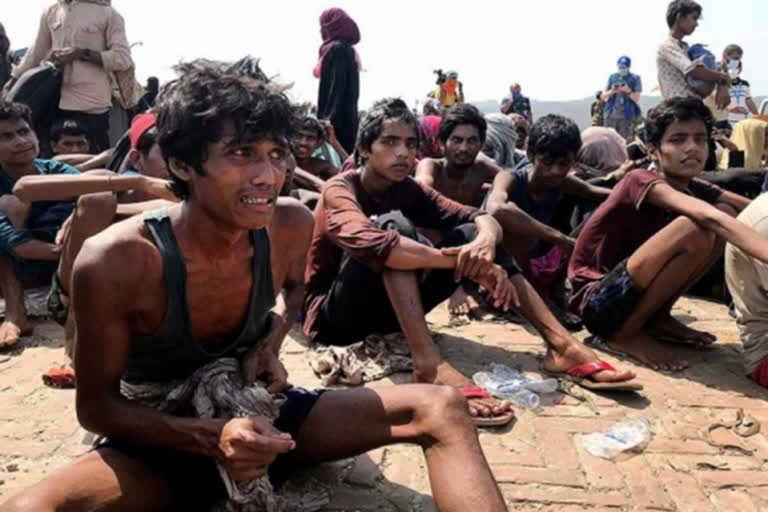New Delhi: The Kerala government has told the Supreme Court that at present there are 12 Rohingya refugees present in the State and no anti-national activities including their association with Pakistan's ISI or the Islamic State or Caliphate (ISIS) has been reported so far.
The state made the submission in response to a PIL filed by BJP leader and lawyer Ashwini Upadhyay seeking directions to the Centre and the states to identify, detain and deport all the illegal migrants and infiltrators including Bangladeshis and Rohingyas.
Kerala government in an affidavit said the refugees present in the state comprise two families, including two newborn babies, who are residing at Muttil in the Wayanad district.
It said, "so far, no instances of Rohingyas being associated with ISI or ISIS were reported in the state."
Kerala government also submitted that during the last five years, no case under the Immoral Traffic (Prevention) Act 1956, has been reported against Rohingyas or illegal Bangladesh immigrants in the state.
The affidavit further submitted that in 2015, Wayanad Muslim Orphanage authorities (WMO), an NGO, brought the Rohingyan Refugees to Bafaqi Home, Mananthavady, Wayanad.
As per the Standard Operating Procedure issued by MHA on "infiltration of Rohihyans into the Country", their Biometric and Biographic details were uploaded in the Government e-Portal except one new baby born in December 2019, it said.
At the time of the arrival of these Rohingyas in Kerala, they possessed UNHCR (United Nations High Commissioner for Refugees) Cards, it said, adding that renewal of cards of four Rohingyans, belonging to one family, however, are pending as they are unable to go to Chennai, due to financial hardships and COVID-19 pandemic situation.
The affidavit said that instructions have been given to District Police Chief, Wayanad to maintain a close watch on Rohingyan refugees.
About illegal migrants, the state is taking concrete steps to detect the overstaying foreigners who used forged travel documents or surreptitiously entered into the country and a committee has been constituted to detect foreigners who have been illegally overstaying in India since January 1, 2011, it added.
Earlier, the Karnataka government had told the Supreme Court that it would "scrupulously" follow the orders to be passed on the PIL.
Upadhyay, in his PIL, has sought a direction to the Centre and the states to "amend respective laws to make illegal immigration and infiltration a cognizable, non-bailable and con-compoundable offence".
"The large-scale illegal migrants, particularly from Myanmar and Bangladesh, have not only threatened the demographic structure of bordering districts but seriously impaired security and national integration," the plea said.
Upadhyay's plea alleged there was an organised influx of illegal migrants from Myanmar through agents and touts via West Bengal, Tripura, and Guwahati.
"This situation is seriously harming the national security of the country," the plea said.
Earlier, the apex court, on April 8, had made it clear that Rohingyas, who have been detained in Jammu, shall not be deported to Myanmar unless the procedure prescribed for such deportation is followed by the authorities.
The bench had said it is true that rights guaranteed under Articles 14 and 21 of the Constitution are available to all the persons who may or may not be citizens but the right not to be deported is "ancillary or concomitant" to the right to reside or settle in any part of India.
While Article 14 deals with equality before the law, Article 21 deals with the protection of life and personal liberty.
The order was passed on an application seeking the release of detained Rohingya refugees and also a direction to the Centre not to deport those who have been detained in the sub-jail in Jammu.
The Centre had earlier opposed the plea saying the country cannot be the "capital" for illegal immigrants.
Violent attacks allegedly by the Myanmar army have led to an exodus of Rohingya tribals from the western Rakhine state in that country to India and Bangladesh.
Many of them, who had fled to India after the earlier spate of violence, have settled in Jammu, Hyderabad, Haryana, Uttar Pradesh, Delhi-NCR, and Rajasthan.
PTI



